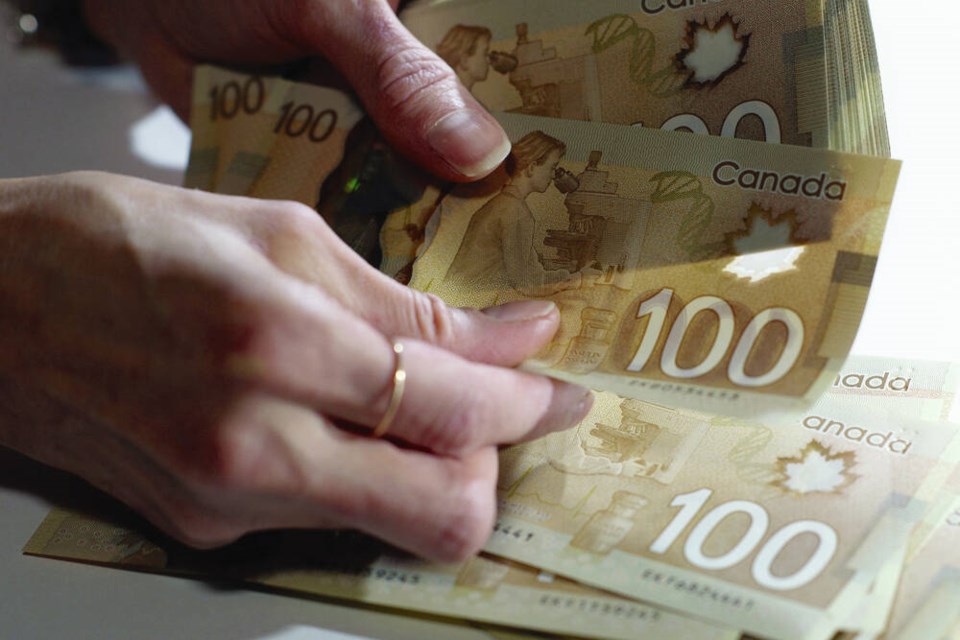Which province in our Dominion is luckiest? I don’t mean in terms of existential blessings — spectacular coast, forests and mountains, rich natural resources, Ryan Reynolds — that’s us, obs. I mean luckiest province in the context of gambling.
Online casino guide DatSlots recently analyzed lottery winnings of $10,000 or more in Canada’s three national draws, Lotto Max, Lotto 6/49, and Daily Grand, over the previous year. The lucky winner? Nunavut!
Let me pause and give you a moment to ask the totally natural questions we’re all wondering right now: Who? Where? What?
Vast (Nunavut covers one-fifth of Canada: 2.093 million square kilometres), and wee (population 40,586) at the same time, Nunavut was created in 1999 when nobody down south was looking, due to worries about the whole Y2K-meltdown-of-civilization situation.
Anyway, last year those lucky folks saw $172,473 in winnings per 1,000 residents — almost enough to import lettuce!
The second-most lucky province, despite all evidence to the contrary, is Alberta! With 4,601,314 people, Alberta had $67,566 in winnings per 1,000 residents.
Before you ask, British Columbia is number six on the list (population 5,368,266, with $38,547 in winnings per 1,000 residents). The other provinces are scattered before and behind us, but really, who cares? What we all want to know in this paragraph is, “Are Albertans really more lucky than British Columbians? Don’t they have to live in Alberta ALL THE TIME!?”
Regardless of where you live, Statistics Canada says the odds of winning the lottery are “highly remote.”
I like this poetically accurate description. The pointy headed statisticians cite the example of Lotto 6/49, which because of complicated mathematics and other arcane arts, has 14 million different number combinations in every ticket.
Despite the probability of winning the jackpot being 14 million to 1, many Canadians buy lottery tickets because “somebody has to win.” Yes, eventually somebody will win, but it will not be me and it will not be you. Don’t hate the messenger; hate the math.
It is all based on the science of probability, which is simply how likely something is to happen. To calculate probability — hang on a second … checking my notes — OK, got it: you must divide the number of favourable events or coins by the total number of possible dice, not forgetting about the addition rule, the multiplication rule and the complement rule, which we do not have time to get into what with March just around the corner.
Psychologists suggest “availability bias” may be to blame for ignoring the math. This is the human tendency to rely on information that readily comes to mind when evaluating situations or making decisions.
For example, after reading an article about lottery winners, you overestimate your likelihood of winning the jackpot and start spending money on tickets instead of food, or how after watching a television program on shark attacks, you opt for a shower rather than a bath.
We have other human psychologies working against us, such as “confirmation bias,” our tendency to favour information that confirms or strengthens our existing beliefs and values, and “self-serving bias,” our tendency to process information in ways that advance our own self-interest. What I’m saying is that our brains are trying to kill us.
Other common-but-delusional reasons used for regular lottery ticket-buying include:
• “I’ve got a system.” (often based on the 16th century poetic quatrains of Nostradamus)
• “The past 800 weeks of not winning means it’s my turn!”
• “I really don’t believe in math.”
I understand the argument sometimes made along the lines of “it’s all just good fun.” That is to say, buying lottery tickets is a kind of fantasy entertainment, where, for a few dollars, you get to dream about a future of fabulous wealth where you can do and say anything you want, and no longer have to wear pants. That does sound nice.
And fantasy gambling is probably safer than living in the 21st century, which is pretty much one long string of gambles. If you’re reading this in Saanich where I live, you are on top of a massive earthquake fault line. This is also true if you live in Esquimalt, Oak Bay, Victoria, Sooke, View Royal and everywhere else on this part of Vancouver Island.
Every day here, we roll the dice as to whether or not it all ends up in a big, scary pile. This is a big part of the reason why I still haven’t started our kitchen renovation.
My point is that we are all gamblers! Read these questions and then rate yourself on a scale of 1-10, where 10 is “risky gambler” and 1 is “What is this column supposed to be about, again?”
• Do you floss your teeth every 10 minutes, like the dentist says?
• How cavalier is your approach to best-before dates on yogurt from the back of the fridge?
• When was the last time you actually checked your car’s oil?
Regardless of your score, you and I both know baby needs new shoes, laissez les bons temps rouler, etc.
What I mean is, in total, the three national lottery draws awarded more than $1.6 billion-with-a-B to Canadians last year.
With that kind of money, it’s very easy to forget about the odds and believe “Maybe this time it will be me!”
I hope you win. You will not.
The overwhelming majority of Canadians do not have a gambling problem. But some do — about 2% of gamblers, according to Statistics Canada. If you think you might be one of them, Gambling Support BC (1-888-795-6111) is open 24/7 for confidential, free help.
>>> To comment on this article, write a letter to the editor: [email protected]



